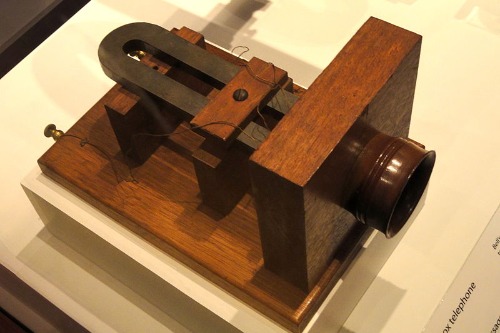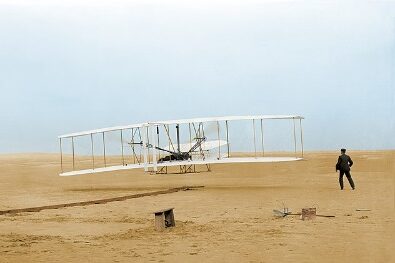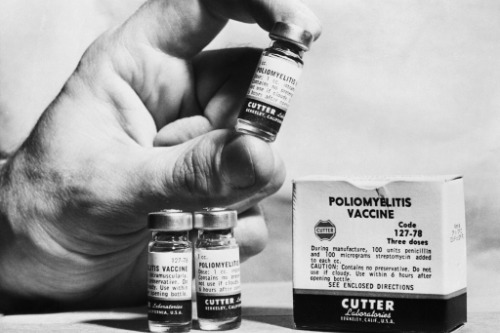1. The Gas Mask – Garrett Morgan

Yes, Garrett Morgan deserves another mention for his gas mask, invented to save lives in emergencies. He demonstrated its value during a 1916 tunnel explosion rescue, earning admiration but little financial reward. Like his traffic light, Morgan sold patent rights for a fraction of its eventual value. His gas mask has saved countless lives in wars, fires, and disasters, cementing his humanitarian legacy.
Morgan’s focus was public safety, showing inventors don’t always chase wealth. The gas mask became standard in military and industrial applications, proving the life-saving potential of his work. He left a mark on safety equipment worldwide, though he didn’t get rich doing it. His inventions remind us that protecting people can be more important than protecting profits.
2. The Telephone – Alexander Graham Bell

Alexander Graham Bell is often celebrated as the inventor of the telephone, a device that transformed global communication. Bell’s invention allowed people to talk across cities and eventually across continents, shrinking the world in a way nothing had before. Despite the immense impact of his work, Bell didn’t become a billionaire from his invention. Early patents were fiercely contested, and while he did make some money, he never enjoyed the financial freedom his creation deserved.
Bell’s passion for communication innovation was more about connecting people than lining his pockets. He poured his energy into education for the deaf and other scientific pursuits. His legacy lives on in every phone call made today, even if he personally didn’t reap enormous wealth. It’s a classic story of genius being ahead of its time in terms of compensation.
3. The Cotton Gin – Eli Whitney

Eli Whitney’s cotton gin simplified the tedious process of separating cotton fibers from seeds, transforming agriculture in the South. This invention should have made him a wealthy man overnight, but patent disputes and slow legal battles drained his resources. Whitney did profit from government contracts later, but he never gained full wealth from his game-changing machine. The gin made cotton a dominant cash crop, but Whitney himself didn’t enjoy the bounty of his innovation.
Whitney’s struggle underscores how intellectual property wasn’t as secure in the 18th century as it is today. He eventually focused on manufacturing firearms, but the gin remained his most famous contribution. Cotton gin profits mainly went to plantation owners rather than its inventor. Today, his name is synonymous with a machine that reshaped the economy, yet he died far from rich.
4. The Steamboat – Robert Fulton

Robert Fulton is credited with making the steamboat commercially viable, ushering in a new era of transportation. Before steamboats, river travel was slow and unreliable, but Fulton’s design changed how goods and people moved. Despite the monumental impact, Fulton struggled financially, partly due to the huge costs of building and maintaining steamboats. His early contracts with the government helped a little, but he never became wealthy from his invention.
Fulton’s innovation made river commerce and travel more efficient and accessible. He faced skepticism and resistance from investors who were wary of the technology. His vision reshaped American industry, linking cities along rivers in unprecedented ways. Yet, the man behind it never truly saw the financial fruits of his labor.
5. The Airplane – Wright Brothers

Orville and Wilbur Wright are pioneers of controlled flight, which would eventually shrink the world and redefine human mobility. Their first successful powered flight in 1903 was a historic achievement, yet financial struggles followed. They spent years perfecting their designs and dealing with patent disputes that limited their earnings. The Wright brothers’ contribution laid the foundation for modern aviation, though they personally didn’t profit as much as the airline industry would later.
Their passion was engineering excellence, not financial gain. Even with fame, they spent much of their lives defending their patents in court rather than reaping rewards. The brothers’ story shows the tension between innovation and money, especially when the world isn’t immediately ready to commercialize a new technology. Today, we travel the skies freely thanks to their dedication.
6. The Traffic Light – Garrett Morgan

Garrett Morgan invented the three-position traffic light, a safety device that changed roads worldwide. His innovation helped prevent accidents and saved countless lives, yet he struggled financially to gain recognition. Morgan sold the rights to his invention for a modest sum, missing out on the long-term profits. His creation became an essential part of urban infrastructure, but he personally didn’t see massive financial returns.
Morgan was deeply committed to public safety, which drove his inventive spirit. He also invented a safety hood for firefighters, proving he cared more about human lives than wealth. Despite this, systemic barriers and limited access to funding kept him from profiting fully. His legacy is one of saving lives and shaping modern traffic systems.
7. The Polio Vaccine – Jonas Salk

Jonas Salk developed the first effective polio vaccine, eradicating a disease that paralyzed thousands of children. He famously refused to patent the vaccine, stating it belonged to humanity, not to him. Salk could have become extremely wealthy but believed access to medicine should not be restricted by profit. His choice made him a hero, yet it cost him potential financial security.
Salk’s story is remarkable because it shows altruism in science at its purest. Millions were spared from polio because he prioritized public health over personal gain. He dedicated his life to research and teaching instead of wealth accumulation. The world owes him more than money can measure.
8. The Zipper – Whitcomb Judson

Whitcomb Judson invented an early version of the zipper, aiming to simplify fastening clothes and shoes. His invention, though groundbreaking, was clunky and commercially unsuccessful at first. Judson went bankrupt trying to market it, despite the device eventually becoming ubiquitous. Today, zippers are everywhere, yet the inventor never lived to enjoy their success.
Judson’s persistence laid the groundwork for future improvements by others. The zipper’s evolution shows how an idea can outlive its initial creator’s financial troubles. He is remembered more in history books than in his bank account. The zipper reminds us that timing and execution often matter as much as invention.
9. The Super Soaker – Lonnie Johnson

Lonnie Johnson, a former NASA engineer, created the Super Soaker, a toy that revolutionized summer fun for kids everywhere. Despite its massive popularity and sales, Johnson initially struggled to negotiate royalties that reflected the toy’s success. Licensing and legal issues meant he didn’t see the full fortune from his invention right away. His idea brought joy to millions, even if it didn’t immediately fill his pockets.
Johnson’s inventive genius spans beyond toys—he holds over 100 patents. The Super Soaker is just the most famous example of how playful innovation can change culture. The toy’s success highlights the gap between creative brilliance and financial reward. Johnson’s story inspires inventors to dream big, even if the payoff isn’t instant.
10. The Electric Guitar – Leo Fender

Leo Fender revolutionized music with the electric guitar, helping shape rock, blues, and countless other genres. His designs allowed musicians to reach new creative heights, but Fender sold his company before reaping the full financial benefits. Though he made a living, the vast cultural and monetary impact of his invention largely went elsewhere. Guitarists worldwide owe their sound to Fender, yet he didn’t become a multimillionaire from it.
Fender’s focus was on innovation and accessibility for musicians, not personal profit. His instruments democratized music creation, changing the industry forever. Selling his company was practical but meant missing out on decades of earnings. Today, his legacy resonates every time someone strums an electric chord.
11. The Microwave Oven – Percy Spencer

Percy Spencer accidentally invented the microwave oven while working with radar technology. This convenient kitchen appliance transformed how people cook and live, saving hours of meal prep. Despite the microwave’s popularity, Spencer didn’t profit personally from his discovery; it was developed under his employer, Raytheon. He remained modest and dedicated to his work rather than wealth accumulation.
Spencer’s story is a perfect example of accidental innovation changing the world. His curiosity led to a discovery that millions rely on daily. Even without financial reward, he left a lasting imprint on modern life. Sometimes, life-changing inventions belong more to society than the inventor.
12. The Air Conditioning Unit – Willis Carrier

Willis Carrier invented modern air conditioning, making life and work in hot climates bearable. His innovation reshaped industries, workplaces, and homes around the world. Despite its enormous societal impact, Carrier didn’t become a billionaire from the technology. He focused on engineering solutions and helping industry rather than personal enrichment.
Carrier’s work enabled skyscrapers, movie theaters, and even data centers to thrive. He changed daily life in ways people barely notice until the AC stops working. Carrier’s story is about long-term vision over immediate financial reward. His invention is quietly keeping the world comfortable while his wallet remained modest.
13. The Light Bulb – Thomas Edison

Thomas Edison is synonymous with the light bulb, but what many don’t realize is that his path to success was paved with countless failures. Edison held over 1,000 patents, yet his initial experiments often left him in financial struggle. He revolutionized society by making artificial light widely accessible, which extended productivity and leisure after dark. Despite the fame, he invested heavily in his labs, which ate into his personal fortune for years.
Edison’s story shows that innovation isn’t always about immediate financial reward. He focused on building infrastructure and practical applications, thinking about impact over instant profit. Even though he eventually became wealthy, much of his early work and the groundwork for the electric age came at a personal financial cost. His invention changed how we live, but Edison’s early years were far from luxurious.
This post 13 American Inventions That Changed the World but Their Creators Died Broke was first published on American Charm.


